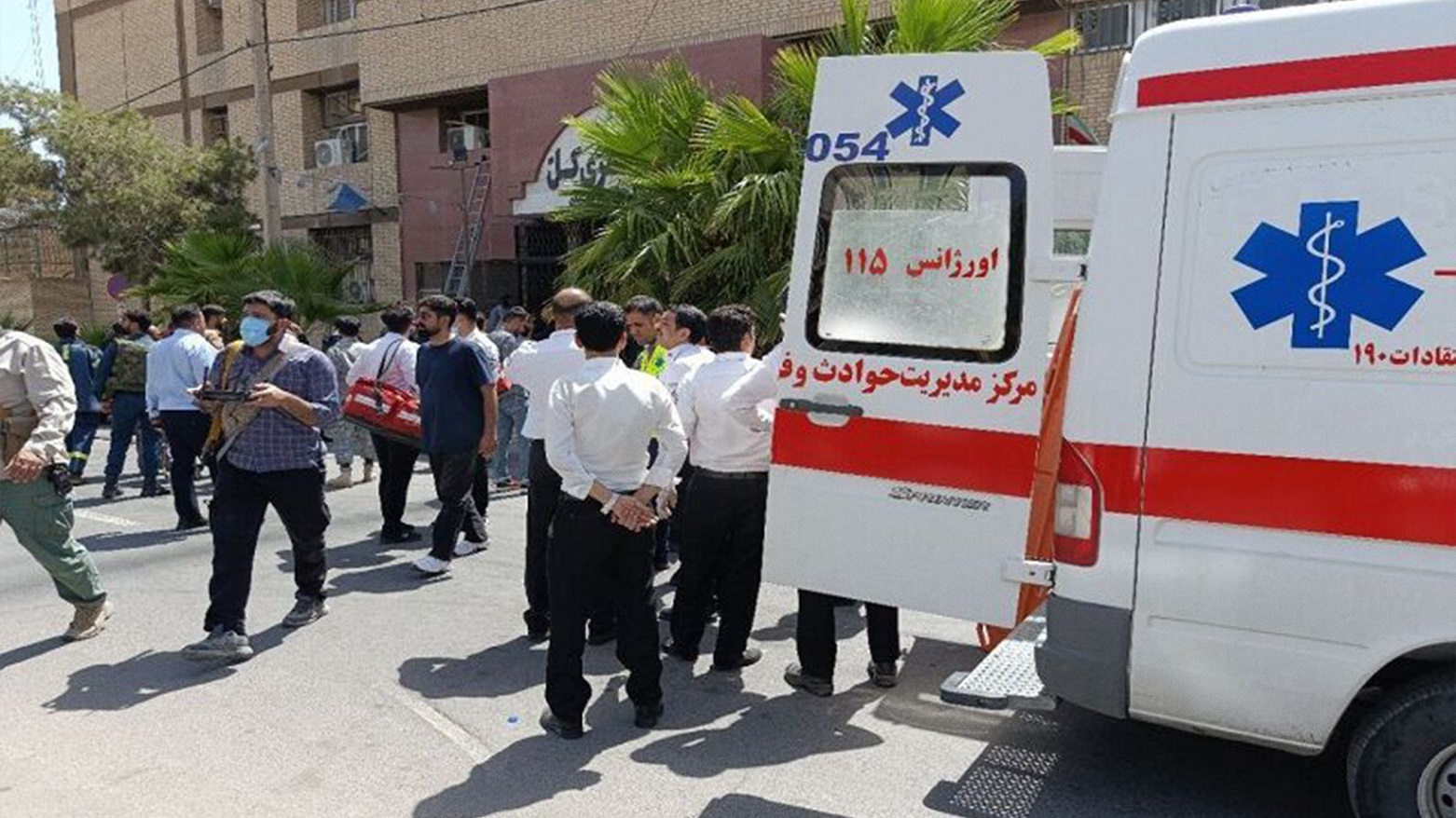A violent assault on a courthouse in Zahedan, the capital city of Iran’s southeastern Sistan-Baluchestan province, has resulted in the deaths of at least five civilians and injuries to thirteen others, according to reports from Iranian media.
The incident, which occurred on Saturday, has once again drawn attention to the volatile security situation in the region.
Among those tragically killed were a mother and her child.
Both were caught in the attack when gunmen stormed the building and hurled a hand grenade inside, a senior police official confirmed to the state-run IRNA news agency.
The attackers attempted to breach the facility by disguising themselves as regular visitors, a tactic that briefly allowed them access before chaos erupted.
During the attack, three of the assailants were reportedly killed, as stated by the regional command of the Islamic Revolutionary Guard Corps (IRGC).
Emergency services responded swiftly to the scene, with the wounded being transported to nearby hospitals for urgent treatment.
The armed group Jaish al-Adl, meaning “Army of Justice” in Arabic, claimed responsibility for the attack through a statement posted on its Telegram channel.
The group, which is known to operate across the border in Pakistan as well as within Iran, urged civilians to vacate the area immediately for their own safety.
Iranian authorities continue to monitor the situation closely, fearing further escalation.
Eyewitnesses quoted by HAALVSH, a Baloch human rights organization, described scenes of terror as the attackers moved through the courthouse.
Several judiciary staff members and security personnel were reported to have been either killed or seriously injured when the assailants targeted the judges’ chambers.
Sistan-Baluchestan province, situated near the borders with Pakistan and Afghanistan, is predominantly populated by Iran’s Sunni Muslim Baloch minority.
The region has long experienced unrest, with many local residents claiming systemic economic marginalization and political exclusion by the central government.
These grievances have fueled separatist sentiments and frequent clashes with state forces.
Some armed factions say they are fighting for more autonomy and civil rights for the Baloch population.
On the other hand, Iranian officials accuse these groups of collaborating with foreign powers and engaging in criminal activities, including arms trafficking and drug smuggling.
The porous border areas have made the region a hotspot for both political and criminal violence.
Zahedan and surrounding towns have repeatedly witnessed skirmishes between government forces, including the IRGC, and insurgent groups.
The IRGC has maintained a significant presence in the province to combat what it calls terrorism and to tighten border control.
However, the ongoing unrest underscores the challenges the Iranian government faces in securing the region and addressing the grievances of its Sunni Baloch population.
Saturday’s incident is just one in a series of violent confrontations that have plagued the province over recent years.
In one of the deadliest such attacks, ten police officers were killed in October in what Iranian authorities labeled a terrorist assault.
Such incidents highlight the persistent instability in Sistan-Baluchestan, which remains one of the most underdeveloped regions in Iran.
Tensions in the province are exacerbated by its strategic location and its demography.
As a frontier region bordering two countries, and being home to a Sunni minority in a predominantly Shia nation, Sistan-Baluchestan has long been a focal point for unrest.
The central government has often responded with heavy-handed security measures, but critics argue that this approach fails to address the root causes of discontent among the local population.
The courthouse attack has sparked renewed concern over security in Iran’s southeastern border regions, particularly amid growing regional instability.
Insurgent groups continue to assert their presence and challenge state authority.
The government thus faces increasing pressure to strike a balance between national security and addressing long-standing issues of inequality and representation in the region.



